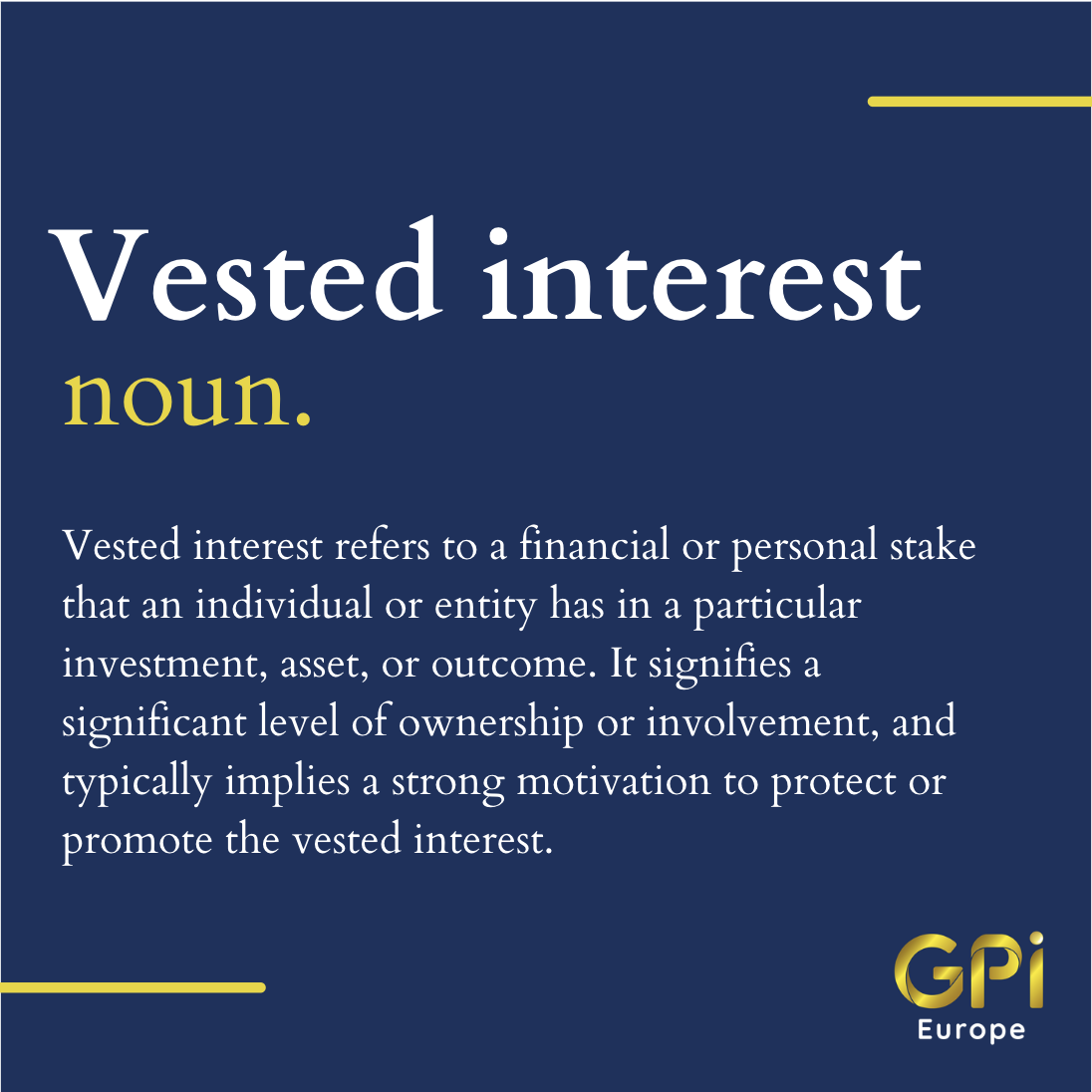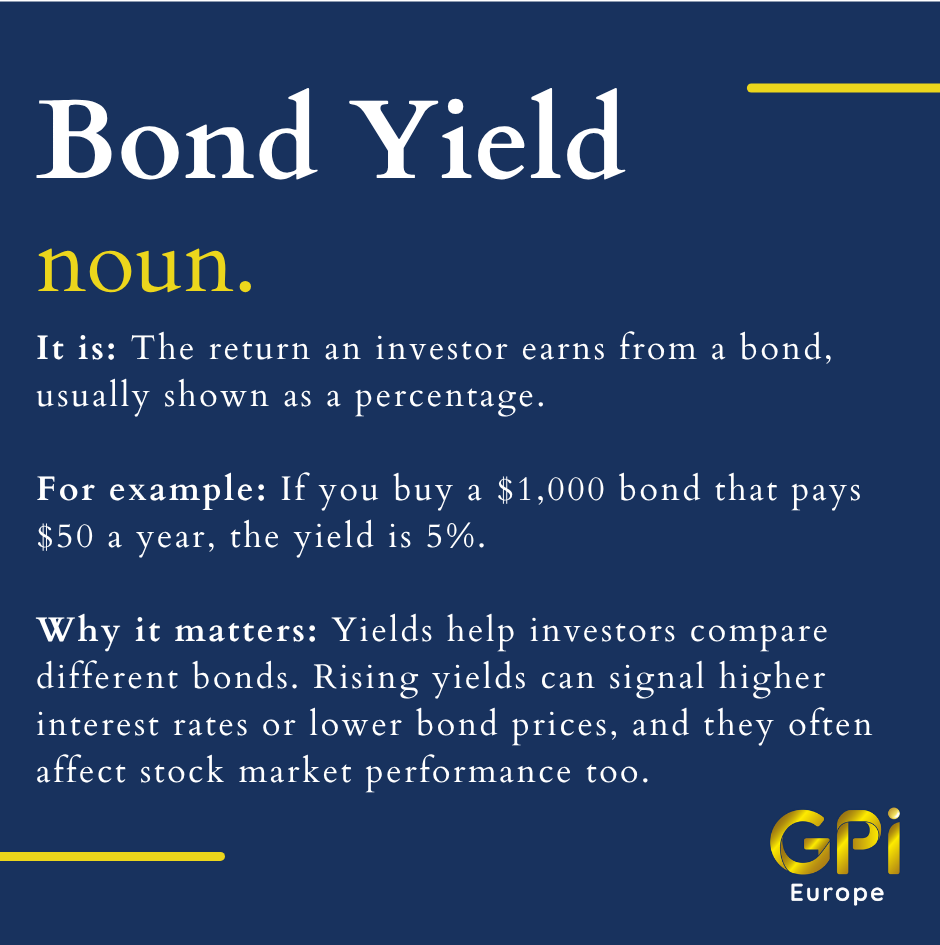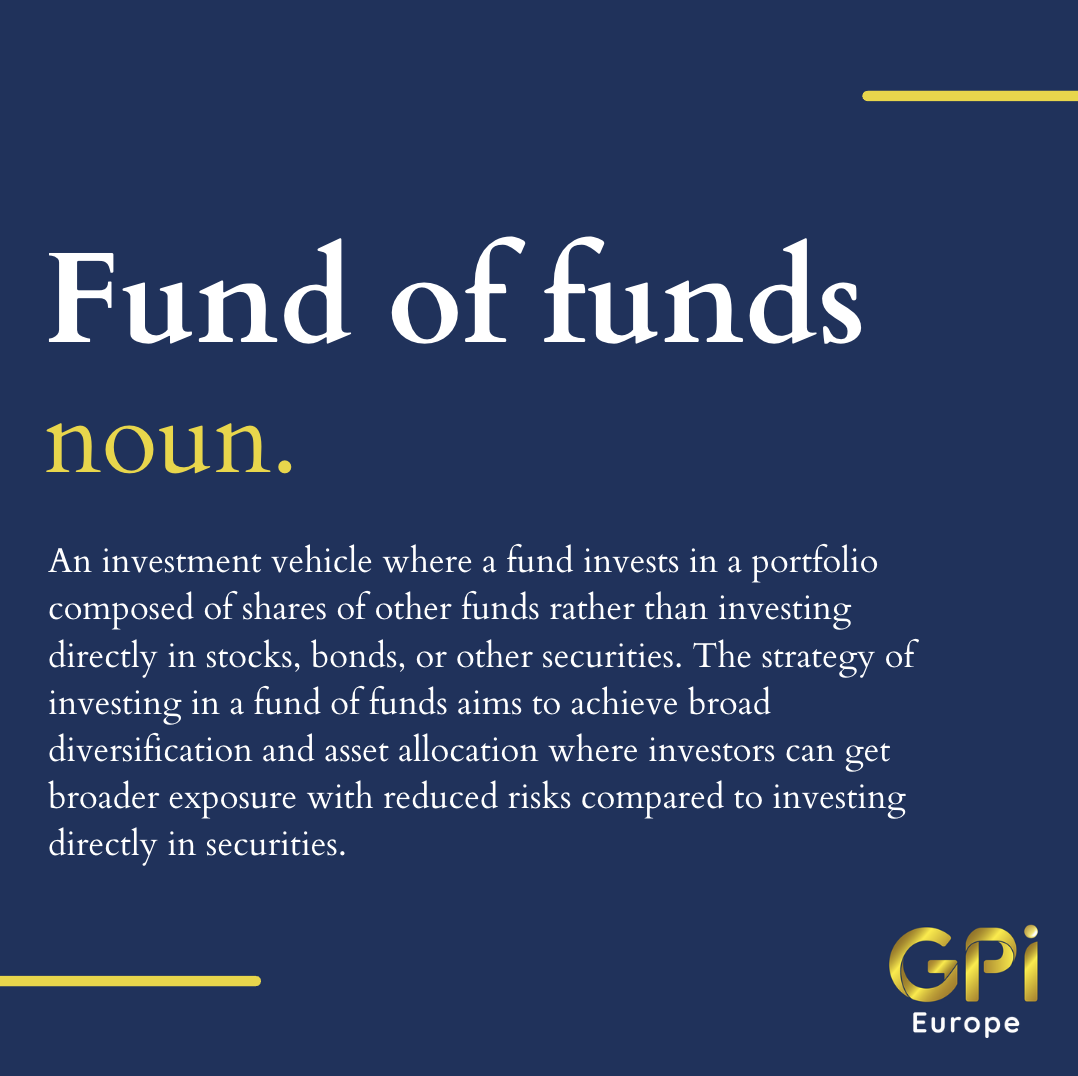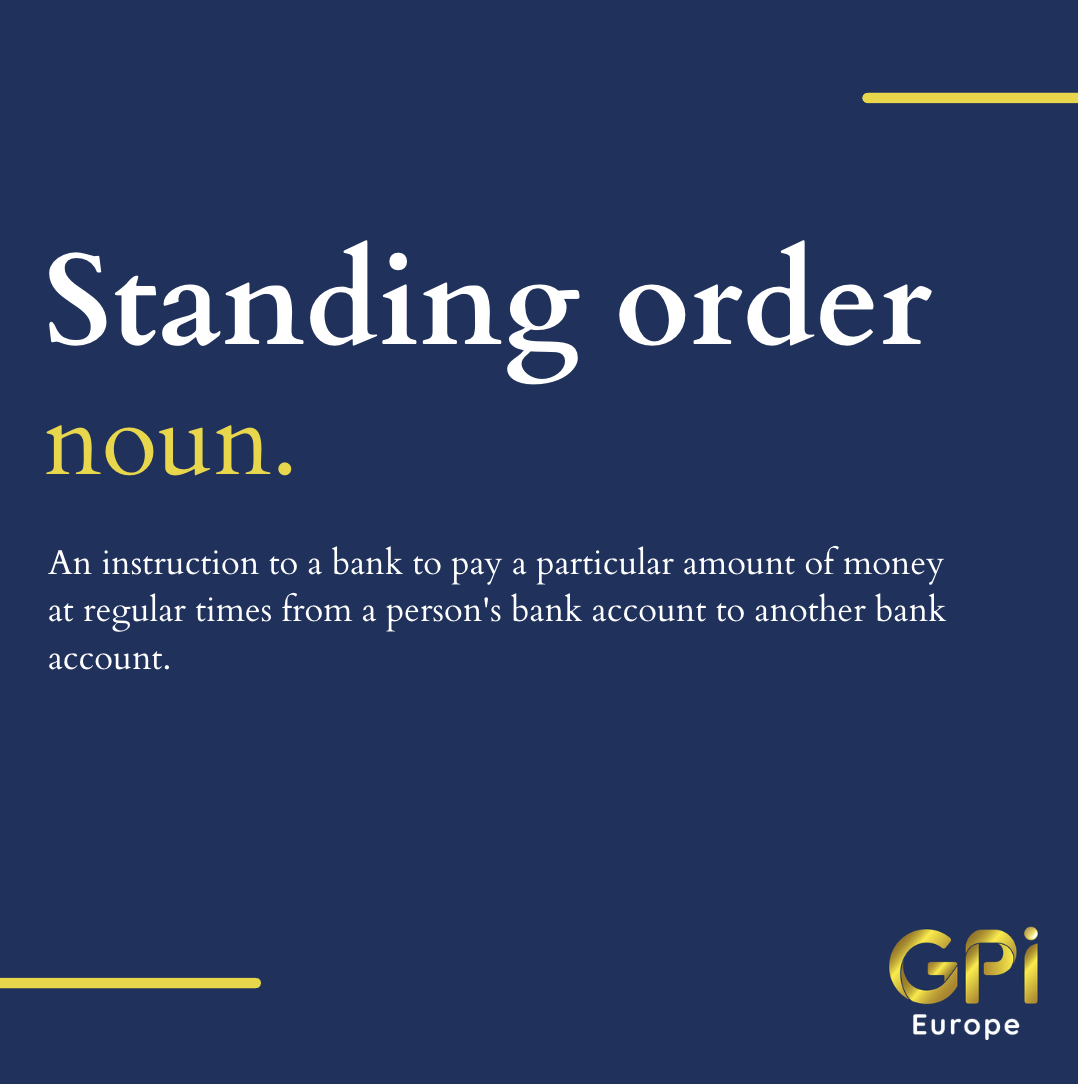Vested interest
Vested interest refers to a financial or personal stake that an individual or entity has in a particular investment, asset, or outcome. It signifies a significant level of ownership or involvement, and typically implies a strong motivation to protect or promote the vested interest.
Examples of vested interest include:
Stock ownership: if an individual or entity owns a significant amount of shares in a publicly traded company, they may have a vested interest in the company’s performance and financial success. They may actively participate in shareholder meetings, vote on corporate matters, and advocate for strategies that could benefit the company and its stock price.
Real estate investment: if a person owns a rental property, they have a vested interest in the property’s occupancy rate, rental income, and property value. They may take steps to maintain and improve the property, screen tenants, and negotiate lease agreements to protect their vested interest in the property’s financial performance.
Retirement savings: individuals who have invested in retirement accounts, such as a 401(k) or IRA, have a vested interest in the performance of their investments. They may closely monitor their investment portfolio, make adjustments, and seek professional advice to maximize their retirement savings.
Business ownership: entrepreneurs and business owners have a vested interest in the success of their business ventures. They may invest significant time, effort, and capital in their businesses and work diligently to achieve profitability, growth, and sustainability.
Legal or contractual agreements: parties to a legal or contractual agreement may have vested interests in the outcome of the agreement. For example, in a partnership agreement, each partner may have a vested interest in the success of the business venture and work towards its success.
It’s important to note that vested interests can have both positive and negative connotations. While having a vested interest can motivate individuals or entities to actively protect and promote their investments or assets, it can also lead to potential conflicts of interest, biases, and unethical behavior if not managed appropriately. It’s crucial to consider and disclose any vested interests in financial or business dealings to ensure transparency and integrity.





